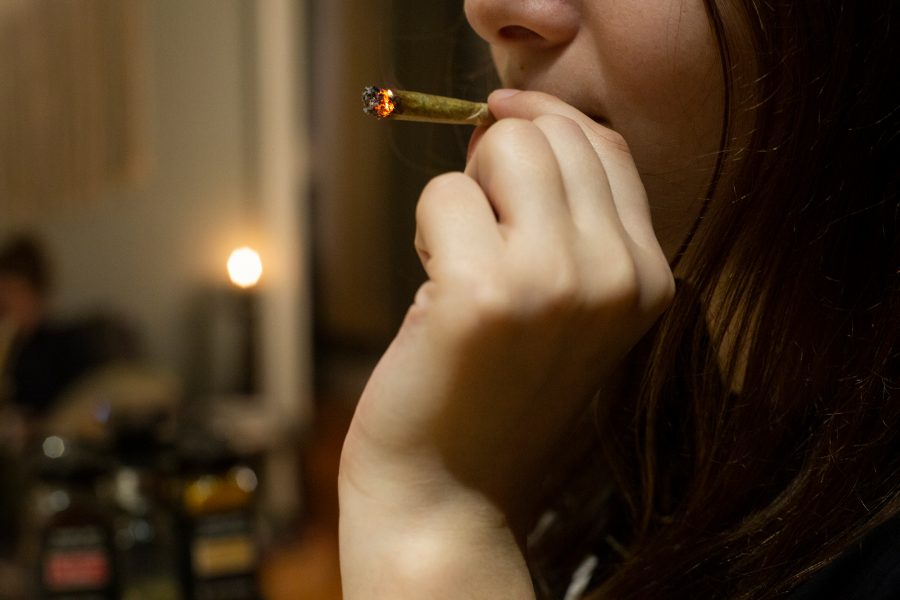Opinion: New York State’s marijuana legalization bill sets a promising precedent
As the 16th state to fully legalize adult use of marijuana, New York has instituted both corrective and preventative efforts to ensure racial and social equity in the legal cannabis market.
New York is the 16th state to legalize marijuana. The bill is a promising step in racial and social equity. (Photo by Alina Patrick)
April 23, 2021
This year’s annual celebration of 4/20 in New York City took on renewed meaning in light of the state’s most recent marijuana-related legislation. On March 31, Governor Cuomo signed a monumental bill legalizing recreational cannabis for individuals over 21. Though previous attempts to pass the legislation had gotten bogged down in the details, progressives prevailed this time by adding a series of provisions that focused on racial equity.
Historically, and in accordance with national trends, cannabis arrests in New York were heavily targeted toward Black and Latino communities. In 2020, it was found that nearly 94% of those facing marijuana charges were from marginalized communities. Considering both the corrective and preventative measures previously undertaken by the state, this bill represents a cautiously optimistic step toward reckoning with inequitable drug policing.
Lawmakers highlighted the bill’s intentional equity policies in relation to pending legislation in other states. California’s 2016 legalization has seen inadvertent high prices as a result of competition with the illegal market, as well as impotent social equity programs. In an effort to prevent similar outcomes, New York State instituted various guidelines promoting racial and social equality, healthy market competition and restrictions on tax revenue allocation from cannabis sales. An explicit goal of 50% of licenses will be given to minority- or women-owned businesses, and all marijuana-related convictions will automatically be expunged from criminal records. The law also earmarks 40% of marijuana tax revenue for education funding, 40% towards grants for communities most affected by drug policing, and 20% for drug treatment.
For young people venturing into an economy damaged by the pandemic, this bill could provide new economic opportunities in the city. Once the licensing and distribution is in full force, it is projected that up to 60,000 jobs will be created in this industry.
Multistate companies are restricted to operating four additional stores, and two must be in minority or underserved communities. Furthermore, the implementation of a two-tiered system, in which businesses can only possess one type of license, prohibits companies from dominating both production and retail. If the state remains vigilant in enforcing these regulations, the marijuana industry will provide not only greater revenues for social programs, but greater opportunity for previously disadvantaged New Yorkers.
Perhaps the most innovative decriminalization aspects of the law are the prohibition of marijuana possession as grounds for deportation, denying public housing or student loans, or separating parents from their children. Since the end of New York City’s discriminatory stop-and-frisk policy in 2014, police justified unwarranted searches by claiming they smelled marijuana. Under the new legalization bill, this policy will no longer be permitted.
While New York is only the 16th state to fully legalize marijuana for adult use, its legislation sets a new precedent for future efforts to confront the harmful impact of the war on drugs. Ensuring equitable access to new legal markets, expunging past convictions and redirecting revenue to underserved populations all are critical improvements that should be mirrored at the federal level.
Opinions expressed on the editorial pages are not necessarily those of WSN, and our publication of opinions is not an endorsement of them.
Email Lucy Yama at [email protected].
























































































































































